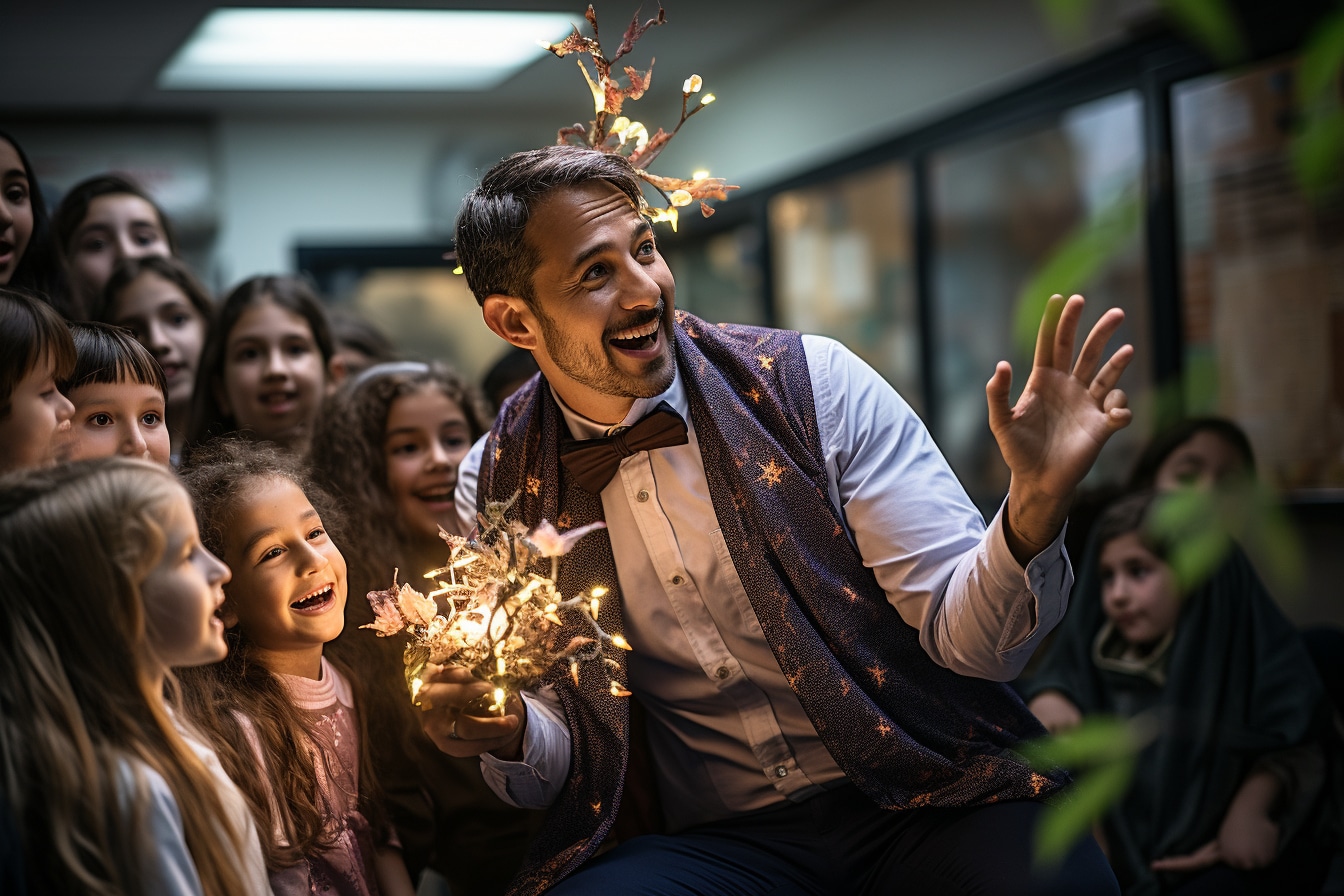Education is essential to children’s development. Yet it can be difficult to capture their attention and interest in certain subjects, especially science and languages. Why not add a touch of magic to teaching? La magie dans l’éducation in Cannes offers an innovative, fun approach to help students better understand and memorize their lessons.
The role of the magician in education
Magicians have the ability to amaze and fascinate children with their tricks and illusions. In this way, they can create an environment conducive to learning and stimulate students’ curiosity. Their presence in the classroom makes it possible to :
- Breaking with routine and offering children a new experience
- Making materials more attractive and accessible
- Encouraging participation and interaction
- Stimulating creativity and reflection
- Developing autonomy and self-confidence
Magic to make learning math easier
Mathematics is a subject often feared by students, as it is perceived as difficult and abstract. But magic can be a great way to teach them in a fun way:
Number manipulation through magic
Magic tricks often involve the use of numbers, teaching children the basics of mental arithmetic. For example, they have to add, subtract or multiply to complete a trick.
Discovering geometric shapes and plane figures
Some optical illusions require the construction of geometric shapes and the drawing of flat figures. In this way, students can grasp these concepts in a concrete, visual way.
Exploring probability and statistics
Some of the card tricks are based on the notion of probability, giving children a fun way to understand the basic principles of statistics.
Teaching French with magic
French is an essential subject for students, enabling them to develop their reading, writing and comprehension skills. Magic can also help facilitate this learning process:
Reading fantastic and wonderful texts
Fairy tales, legends and fantasy novels are populated by characters such as magicians, witches and other enchanted beings. By reading these stories, children develop their imagination and acquire new lexical and syntactic skills.
Writing magical stories
Inviting students to write stories featuring a magician, a costume or a magic potion encourages them to use their creativity and develop their writing skills. It also helps them learn to structure their ideas and respect the rules of French grammar.
An immersive, interactive teaching approach
The use of magic in education offers a pedagogical approach that involves children in their own learning:
- Pupils play an active role in their own progress, reproducing magic tricks and solving problems linked to illusions.
- Peer collaboration and mutual aid are encouraged: to succeed in certain tricks, students have to work together and pool their skills.
- Children can express themselves freely and be inventive, for example by creating their own magic tricks or devising solutions to solve an illusion.
Convincing, lasting results
The introduction of magic into education has proven its effectiveness in improving students’ academic results and boosting their motivation. The benefits observed include
- Better understanding of concepts and easier memorization
- Greater involvement in lessons and interest in the subjects taught
- Development of socio-emotional skills such as self-confidence, expression of ideas and emotions, and conflict resolution.
Magic in education in Cannes is an innovative method that combines academic learning with pleasure. By bringing the enchantment of the world of illusions into the school, we offer children an unforgettable experience that will enable them to learn in a different way and develop intellectually.



Recent Comments